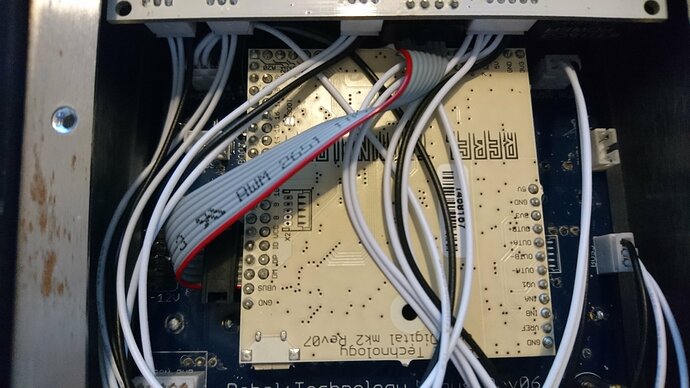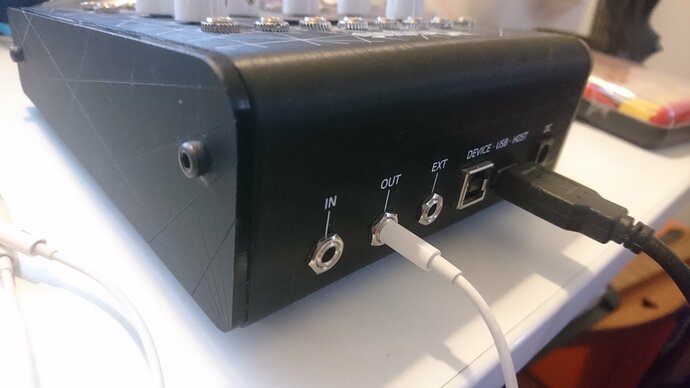Hi, sorry, I haven’t looked at this in a week or two.
I got an STM programmer and am interested to try reprogramming the bootloader soon. Are there instructions on replacing the bootloader (to get the new bootloader with the hang-at-boot protections)? Where can I find a copy of the improved bootloader? I see only the full packages at Releases · pingdynasty/OpenWare · GitHub .
Sorry, when I mentioned the SQ-1, I didn’t necessarily mean I was using it as a sequencer— I saw the problem even in “Step Jump” mode, which basically transforms the SQ-1 into a keyboard with sixteen keys.
I tested just now (on git 10a981bf) with a Korg microKEY Air, so a bog-standard USB keyboard. Testing with my AndiSaw4 patch, if I just sit there and play scales a little under half the notes seem to be missing. It didn’t seem like “lots of MIDI”. It seemed like the problem was triggering with as few as six or seven notes over a period of four to five seconds. I can also test with the YM2413 synth patch (which is polyphonic) in which case I see something more insidious: NOTE OFF messages are frequently dropped, so after hitting random keys for ten seconds or so there is a drone of three continuous notes that never turn off. I could try to record a video if it helps.
I would be happy to test with your “monster” branch (especially if I can get the safety bootloader installed first…  ). Which commit would be most useful for me to test?
). Which commit would be most useful for me to test? 45bf2e2?
instead of having to run STM32CubeMX to generate the library code for each subproject, how about we just bung a recent version of the libraries in a shared directory?
In my opinion, running STM32CubeMX was one of the least onerous parts of the firmware installation process. The hardest part of the entire build actually was that the cube-update.sh step was not not documented and I had to find out about it here. I am sure removing the STM32CubeMX step would make it easier in general but it wouldn’t really make a difference to me.
Here is a question: are the libraries large? Storing libraries in git can get unpleasant, over time. Maybe you could put the libraries in a zip file or something and add a script that automatically downloads the correct version for whatever project the user is trying to install and unpacks it.
I did write up a tutorial on how to do the build from scratch on Windows. I will try to submit that soon, perhaps this week.
Incidentally, I have been listening to “YM2413 Synth” for about five or six minutes now with seven random notes held down infinitely because of the NOTE OFF breakage. It is actually very pleasant once you set some operators. Maybe “break notes off” should be a firmware option 

 ). Which commit would be most useful for me to test?
). Which commit would be most useful for me to test? 


